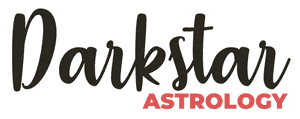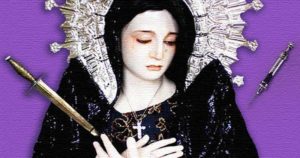Pallas Athena in astrology, symbolizes wisdom, strategy, and independence. Her archetype offers profound insights into the complexities of feminine power, self-sufficiency, and the interplay of intellect and emotion. In astrology, the position of Asteroid Pallas Athena sheds light on themes of self-reliance, creative intelligence, and unresolved feminine wounds.
* Members
The Mythology
Pallas Athena was born under extraordinary circumstances, emerging fully grown and armoured from the head of her father, Zeus. Her mother, Metis, the goddess of wisdom, was swallowed by Zeus to prevent a prophecy that their child would surpass him. This birth without a mother imbued Athena with a uniquely patriarchal alignment and marked her as a deity of rational intellect and strategic warfare, rather than emotionality or traditional femininity.
Her mythological meaning suggests self-sufficiency—Athena did not receive nurturing from a maternal figure, and this absence shapes her archetypal representation. In astrology, this resonates with individuals who may have had to “mother themselves,” cultivating inner strength and resilience without adequate maternal nurturing. Perhaps the mother died in childbirth or was unavailable due to mental illness, drug dependency or narcissism. The placement of Pallas Athena in a natal chart often highlights areas where a person displays ingenuity and independence but may also reveal a wound related to the feminine or the maternal.
Mother Wounds & Contradictions
The lack of maternal influence in Athena’s story suggests a potential disconnection from traditional feminine energies. Astrologically, this could manifest as challenges in embracing vulnerability, nurturing others, or reconciling with the softer, emotional aspects of oneself. Pallas Athena’s placement can indicate a need to heal a “mother wound,” where one may feel abandoned, unsupported, or out of sync with the nurturing feminine archetype. This wound may lead to a heightened reliance on logic, reason, and self-sufficiency, sometimes at the expense of emotional depth or connection.
Athena’s mythology is rife with actions that highlight her complexities and contradictions. She accidentally killed her childhood friend, Pallas, during a sparring match, a tragedy influenced by Zeus’s intervention to ensure her victory. Out of grief, she adopted Pallas’s name as her own, becoming Pallas Athena. This incident reflects the shadow side of her archetype: the unintended harm caused by the pursuit of excellence or dominance.
Her role in the punishment of Medusa further illustrates her relationship with feminine power. Medusa, once a maiden in Athena’s temple, was violated by Poseidon. Instead of defending Medusa, Athena transformed her into a monster. This act underscores Athena’s alignment with patriarchal justice and her complicated relationship with the feminine, as she often sought to protect her status within a male-dominated paradigm. In astrology, these narratives symbolize the internal conflicts between embracing one’s feminine nature and adhering to societal or intellectual expectations. In both punishing Medusa and “accidentally” slaying Pallas it is like Athena is slaying any vulnerability or traces of female energy left inside her.
Athena’s Owl
The owl, often associated with Pallas Athena, symbolizes keen insight, foresight, and the ability to see through darkness. In astrological interpretation, Athena’s owl can indicate a gift for pattern recognition and the ability to devise strategic solutions. Those influenced by Pallas Athena may exhibit sharp intelligence, creativity, and an innate ability to navigate complex situations with clarity and purpose.
Pallas Athena embodies the cosmopolitan and the intellectual. She is the patroness of artisans, cities, and civilized life. Her presence in a chart may reveal a person with a global perspective, a thirst for knowledge, and a flair for blending creativity with pragmatism. She is a muse for those who innovate, strategize, and seek a balance between intellect and artistry.
Modern Psychological & Feminist Views
Sigmund Freud cherished a small bronze sculpture of Athena, which prominently graced his desk. Freud described Athena as “a woman who is unapproachable and repels all sexual desires – since she displays the terrifying genitals of the Mother.” [1] Feminist interpretations of Athena diverge significantly: some view her as a symbol of female empowerment, while others see her as “the ultimate patriarchal sellout … who uses her powers to promote and advance men rather than other women.” [2]
In contemporary Wicca, Athena is honoured as an aspect of the Goddess. Some Wiccans believe she can bestow the “Owl Gift,” granting the ability to write and communicate with clarity. Athena’s status as one of the twelve Olympians also makes her a central figure in Hellenismos, a Neopagan religion dedicated to reviving the ancient Greek faith in the modern era.
Pallas Athena Astrology
Asteroid Pallas Athena signifies the strategic mind, creative intelligence, and the ability to harmonize opposing forces. Her placement in a chart can indicate where one is resourceful, diplomatic, and wise. However, it also reveals where one might struggle with integrating emotional and intuitive aspects, potentially reflecting challenges with maternal relationships or feminine identity.
For those deeply influenced by Pallas Athena, there may be a sense of pride in self-sufficiency and a strong connection to intellectual pursuits. However, the journey of healing involves embracing vulnerability and reconciling with the aspects of the feminine that have been suppressed or wounded.
As the asteroid of wisdom and strategy, Pallas Athena also points to areas of life where we exhibit resourcefulness, a knack for pattern recognition, and a drive to mediate conflicts or bring order out of chaos. Below are ways Pallas Athena might manifest in a natal chart, along with examples.
Pallas Athena By Sign
The zodiac sign in which Pallas Athena resides describes the style in which one’s creative intelligence and strategic thinking are expressed.
- Pallas Athena in Aries: Quick, bold, and innovative thinkers. These individuals excel in situations requiring decisive action. For example, an athlete or entrepreneur with this placement might thrive by devising quick, strategic maneuvers to outpace competitors.
- Pallas Athena in Virgo: Analytical and detail-oriented. Here, the focus is on problem-solving through meticulous planning and refinement. For instance, a researcher or editor may excel in organizing complex data or perfecting intricate details in their work.
- Pallas Athena in Aquarius: Visionary and unconventional. This placement supports thinking outside the box, often championing progressive or revolutionary ideas. An inventor or activist may demonstrate this by innovating in ways that benefit humanity.
Pallas Athena By House
The house placement of Pallas Athena shows where an individual’s wisdom and strategic abilities are most applied.
- Pallas Athena in the 1st House: These individuals embody strategy and intelligence in their personal approach to life. They may come across as assertive, composed, and capable of solving problems in real-time. This placement is common in leaders or public figures who thrive on presenting themselves as wise and resourceful.
- Pallas Athena in the 7th House: A strategist in relationships. These individuals excel at mediating conflicts or forming partnerships where intellectual equality is key. They might work as diplomats, counselors, or in professions requiring tactful negotiations.
- Pallas Athena in the 10th House: Strategic thinking is applied in the realm of career and public reputation. Such individuals are often recognized for their ingenuity and leadership. For example, a CEO or political strategist may shine by crafting effective plans that garner public recognition.
Pallas Athena By Aspect
Aspects to Pallas Athena indicate how her strategic and intellectual qualities are influenced by other energies in the chart.
- Conjunct Mercury: Amplifies intellectual brilliance and the ability to articulate ideas clearly. A writer or speaker with this aspect may excel at conveying complex concepts in an accessible manner.
- Square Moon: Highlights tension between intuition and intellect. This may manifest as difficulty reconciling emotional needs with logical decision-making, but it also creates a unique potential for deep emotional wisdom.
- Trine Mars: Combines strategy with action. This aspect can create individuals who excel in fields requiring both careful planning and decisive execution, such as athletes, military leaders, or activists.
Find Asteroid Pallas Athena in Your Chart
1. Create your chart HERE.
2. Choose “Extended Chart Selection”.
3. In “common elements” select Pallas.







